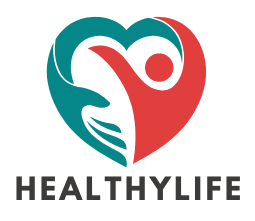what is anxiety disorders?
Anxiety disorders are among the most common mental health issues globally, impacting millions of people across all age groups.
It’s normal to occasionally feel anxious in life. On the other hand, people with anxiety disorders frequently experience intense, excessive, and persistent worry and fear about everyday situations.
Moreover, panic attacks can be accompanied by physical symptoms such as rapid heartbeat, sweating, trembling, and shortness of breath. Additionally, they can be triggered by specific situations or even occur unexpectedly. Furthermore, individuals who experience panic attacks may develop a fear of having another attack, leading to avoidance behaviors.

These uncontrollably intense, out-of-proportion-to-the-real-danger emotions cause disruptions to everyday activities and can persist for extended periods. To stop these emotions, you might steer clear of certain areas or circumstances. The onset of symptoms can occur in childhood or adolescence and persist into adulthood.
What is Anxiety Disorders?
- Definition:
- Anxiety disorders encompass a group of mental health conditions characterized by excessive worry, fear, and apprehension.
- These disorders can significantly impact daily functioning and quality of life if left untreated.
- Types of Anxiety Disorders:
- Anxiety Disorder in General (GAD): excessive and ongoing concern over different facets of life, frequently coupled with physical symptoms.
- Panic Disorder: Recurrent panic attacks characterized by sudden intense fear or discomfort, accompanied by physical symptoms such as rapid heartbeat and shortness of breath.
- Social Anxiety Disorder: Intense fear of social situations and scrutiny by others, leading to avoidance of social interactions.
- Specific Phobias: Irrational and intense fear of specific objects or situations, such as heights, spiders, or flying.
Symptoms of Anxiety Disorders:
- Emotional Symptoms:
- Excessive worry or fear
- Restlessness or irritability
- Difficulty concentrating
- Feelings of dread or impending doom
- Physical Symptoms:
- Rapid heartbeat or palpitations
- Shortness of breath or hyperventilation
- Sweating or trembling
- Upset stomach or gastrointestinal issues
- Behavioral Symptoms:
- Avoidance of triggering situations or objects
- Difficulty sleeping or insomnia
- Compulsive behaviors or rituals (in some cases)
How to Deal with Anxiety Disorders:
- Seek Professional Help:
- Consult a mental health professional, such as a therapist or psychiatrist, for an accurate diagnosis and treatment plan.
-
Additionally, cognitive-behavioral therapy (CBT), medication, or a combination of both may be recommended based on the severity of symptoms.
- Practice Relaxation Techniques:
- Incorporate relaxation techniques such as deep breathing exercises, progressive muscle relaxation, or guided imagery to reduce stress and promote relaxation.
-
Additionally, regular practice of mindfulness meditation can also help calm the mind and alleviate anxiety symptoms.
- Maintain a Healthy Lifestyle:
- Prioritize regular exercise, as physical activity can help reduce anxiety and improve mood.
- Follow a balanced diet rich in fruits, vegetables, whole grains, and lean proteins to support overall health and well-being.
- Alcohol and caffeine should be consumed in moderation as they can aggravate anxiety symptoms.
- Establish a Support System:
-
Additionally, reach out to friends, family members, or support groups for emotional support and understanding
-
Joining a support group or online community can provide a sense of belonging and validation for individuals struggling with anxiety disorders.
-
- Practice Stress Management:
- First, identify and address sources of stress in your life through problem-solving techniques or time management strategies.
- Set realistic goals and prioritize tasks to avoid feeling overwhelmed.
Conclusion:Understanding anxiety disorders, recognizing their symptoms, and implementing effective coping strategies are essential steps in managing and alleviating anxiety. In addition, by seeking professional help, practicing relaxation techniques, maintaining a healthy lifestyle, establishing a support system, and practicing stress management, individuals can take control of their anxiety and lead fulfilling lives.

I’m truly impressed by your deep insights and stellar way of expressing complex ideas. Your depth of knowledge shines through in each paragraph. It’s obvious that you put a lot of effort into delving into your topics, and that effort is well-appreciated. Thank you for sharing this valuable knowledge. Keep up the great work! https://www.elevenviral.com
Thank you for this well-written and informative article. The practical tips you’ve shared are going to be very useful for my work.
I found this post incredibly useful. The tips and insights you’ve shared are going to be very helpful for my work.
Your expertise really shines through in this article. The practical tips and insights you’ve shared are going to be very useful for my work.
Thanks for breaking this down step-by-step.
Thanks for sharing this valuable information.
This is a really helpful resource.